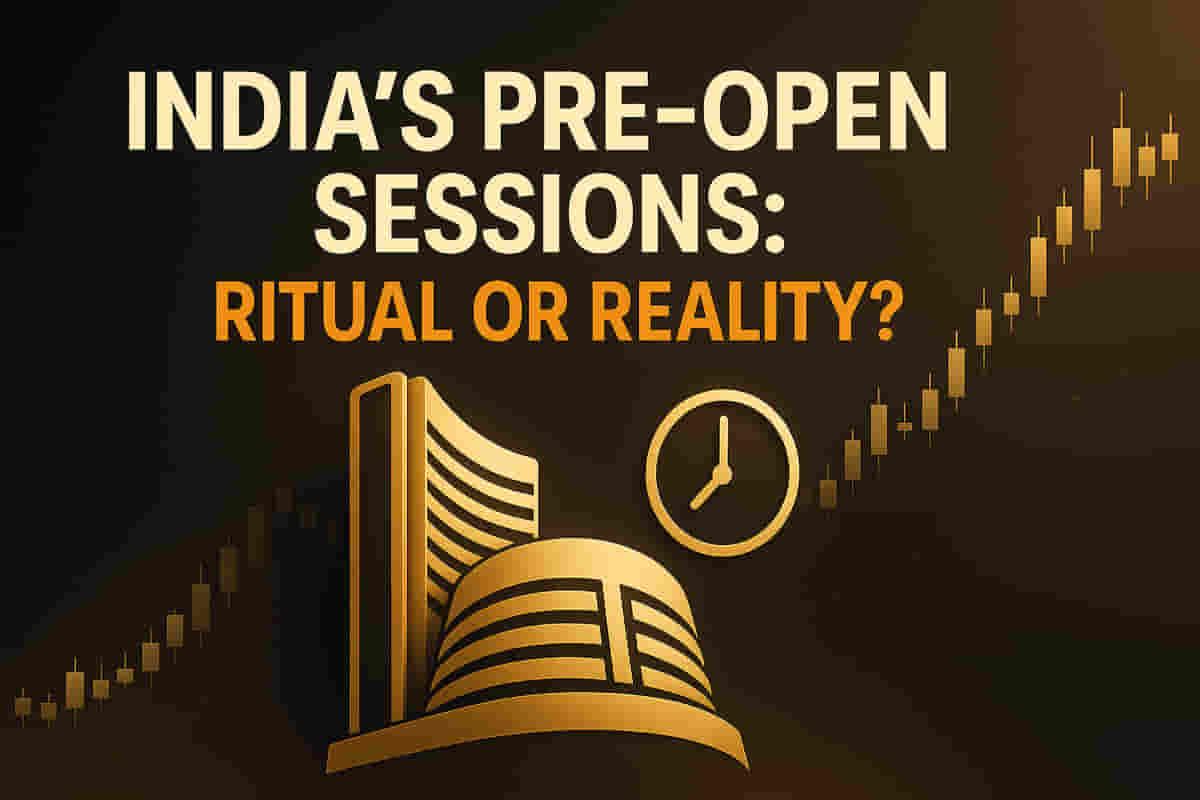India's Stock Market Pre-Open Sessions: Rituals Without Substance or a Case for Reform?
SEBI/Exchange
|
29th October 2025, 10:56 PM

▶
Short Description :
Detailed Coverage :
India's stock exchanges observe pre-open and post-close sessions, intended to set fair opening and closing prices by incorporating overnight news and global cues. The pre-open session runs for 15 minutes before the market opens, allowing order submission to determine an equilibrium price, while the post-close session allows trading at the day's closing price. However, the article argues these sessions are more symbolic than substantive.
Key issues include: 1. **Thin Participation**: Volumes are negligible, with limited retail and institutional involvement except during major events. This makes the discovered price less credible. 2. **Susceptibility to Noise**: Low liquidity makes these windows vulnerable to manipulation and price distortion by a few orders. 3. **Mismatch with Information Flow**: Unlike in the US, Indian companies rarely release crucial information (like earnings) outside regular hours, and global cues are often already priced in via other markets. 4. **Ceremonial Feel**: Actual order matching is brief, giving the exercise a ritualistic feel rather than robust price discovery.
While these sessions have reacted to major events like demonetisation, on normal days, the opening 'equilibrium price' often differs significantly from the actual trading price, indicating fragility. The cost of maintaining these sessions may outweigh their benefits.
Possible solutions include abolishing them entirely or implementing structural reforms: extending the pre-market window, anchoring it to derivatives (like GIFT Nifty futures), mandating participation from market makers and large institutions, enhancing transparency with granular data, or redesigning the post-close session.
Impact These sessions' effectiveness directly impacts market transparency, price discovery efficiency, and investor confidence. If reformed, they could significantly improve how the market opens and closes. If abolished, operations would streamline, and focus would shift to regular trading hours. The potential impact of meaningful reform on market efficiency is rated 7/10.
Difficult Terms Explained: * **Equilibrium Price**: The price where the quantity demanded by buyers equals the quantity supplied by sellers in a market. * **Volatility**: The degree of variation of a trading price series over time, usually measured by the standard deviation of logarithmic returns. * **Price Discovery**: The process by which an asset's market price is determined through the interaction of buyers and sellers. * **Liquidity**: The ease with which an asset can be bought or sold in the market without significantly affecting its price. * **Order-Book Manipulation**: The act of placing orders with the intent to deceive other traders and create a false impression of supply or demand. * **Price Distortion**: When the price of an asset deviates significantly from its fundamental value due to artificial factors. * **ADRs (American Depositary Receipts)**: Certificates issued by a U.S. depositary bank representing shares of a foreign company that can be traded on a U.S. stock exchange. * **GIFT Nifty futures**: Futures contracts based on the Nifty 50 index, traded on the India International Exchange ( GIFT City ) in Gandhinagar, Gujarat, offering trading hours that overlap with global markets. * **Market Maker**: A firm or individual who stands ready to buy or sell a particular security on a regular and continuous basis at a publicly quoted price. * **Derivatives**: Financial contracts whose value is derived from an underlying asset or group of assets. * **High-Frequency Traders (HFTs)**: Computers that execute a large number of orders at extremely high speeds, often trading in and out of positions in fractions of a second. * **Portfolio Rebalancing**: The process of adjusting the holdings of a portfolio to maintain the desired asset allocation. * **Passive Fund Execution**: Executing trades for funds that track an index, aiming to match the index composition and performance with minimal active decision-making.